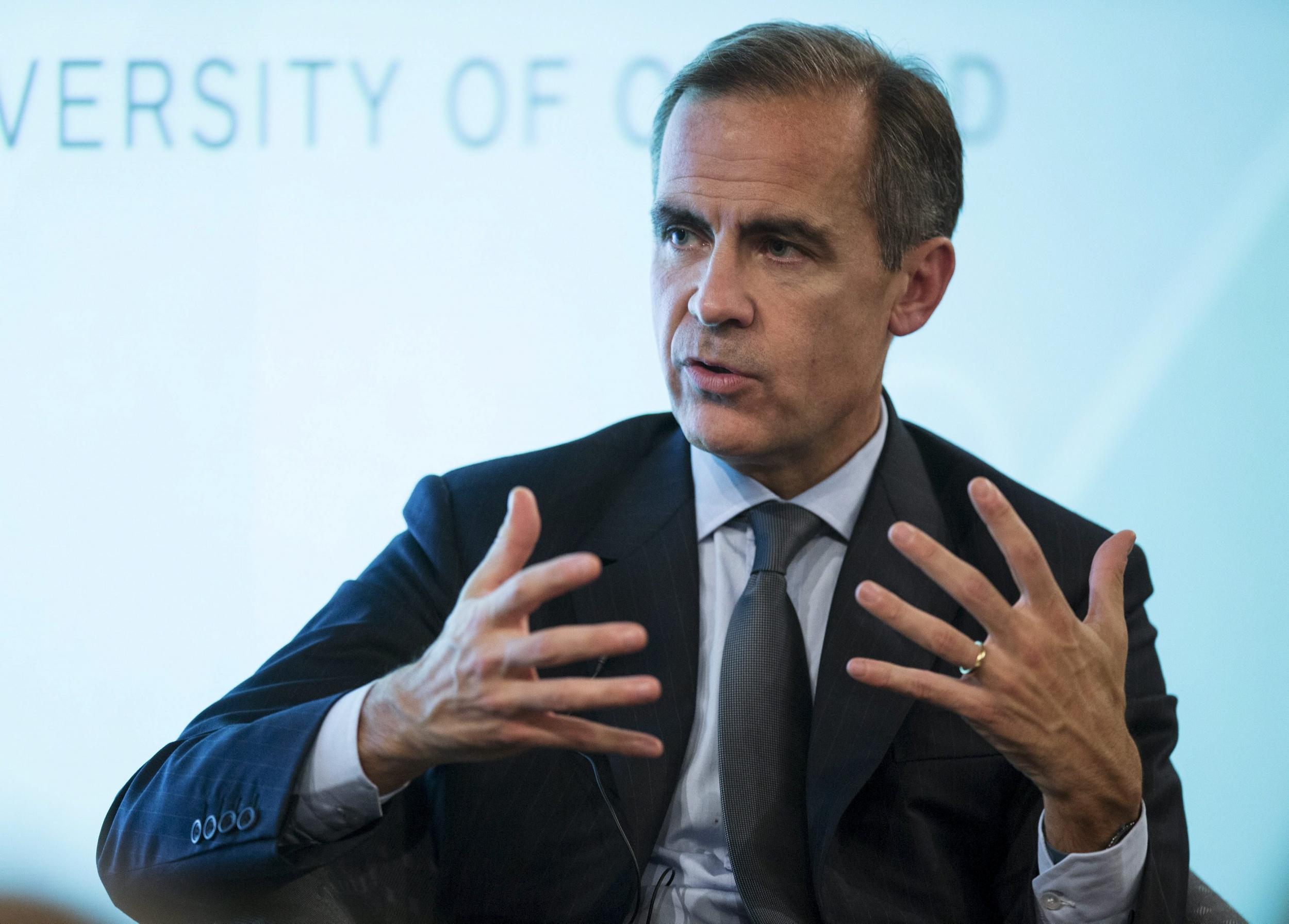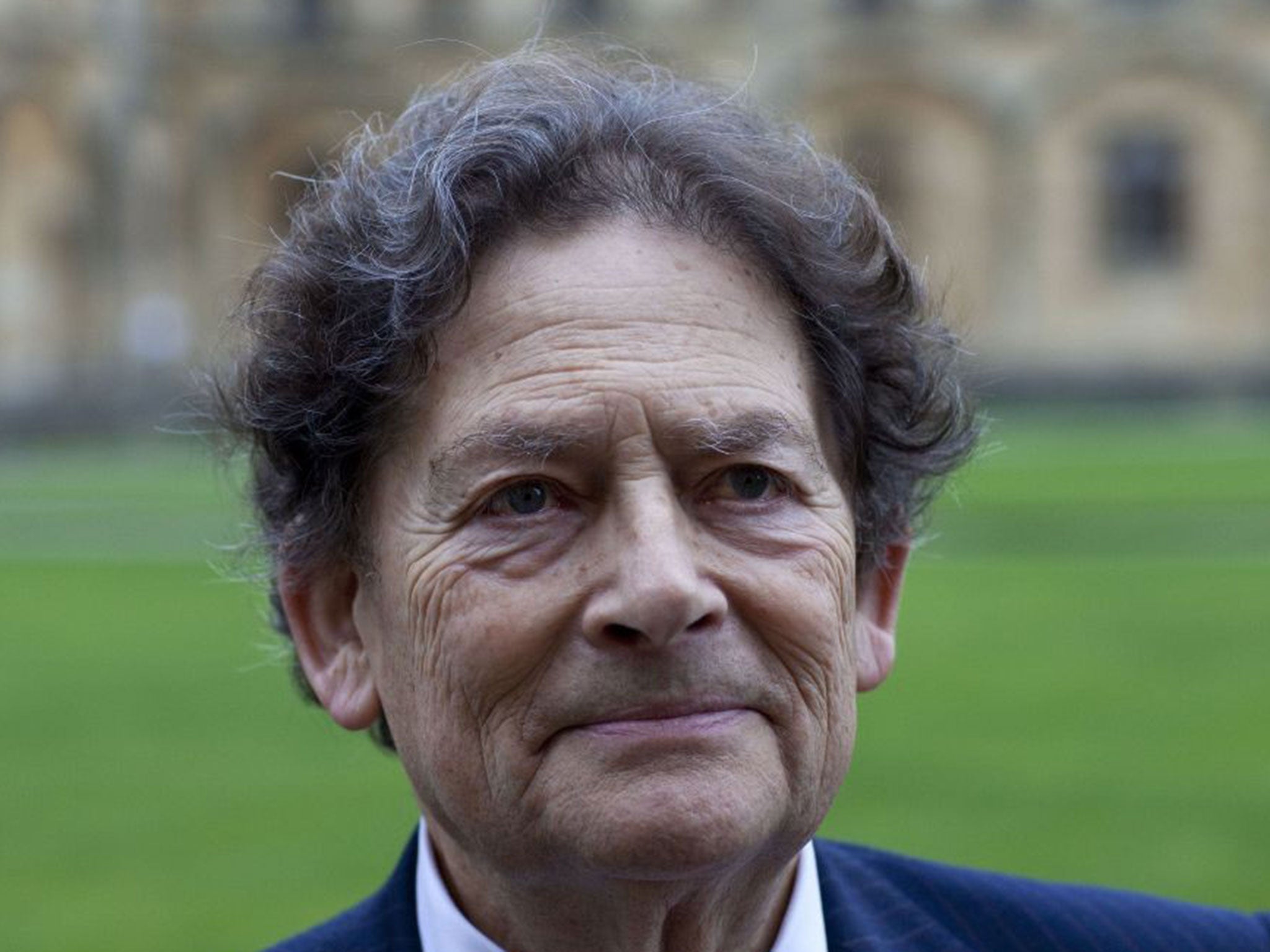Mark Carney 'wrong to wade in' to EU debate, says former Chancellor Lord Lawson
Lord Lawson criticised Bank of England governor for making 'political' with a speech highlighting economic benefits of EU membership

Your support helps us to tell the story
From reproductive rights to climate change to Big Tech, The Independent is on the ground when the story is developing. Whether it's investigating the financials of Elon Musk's pro-Trump PAC or producing our latest documentary, 'The A Word', which shines a light on the American women fighting for reproductive rights, we know how important it is to parse out the facts from the messaging.
At such a critical moment in US history, we need reporters on the ground. Your donation allows us to keep sending journalists to speak to both sides of the story.
The Independent is trusted by Americans across the entire political spectrum. And unlike many other quality news outlets, we choose not to lock Americans out of our reporting and analysis with paywalls. We believe quality journalism should be available to everyone, paid for by those who can afford it.
Your support makes all the difference.Mark Carney was wrong to "wade in” to a political debate about the EU referendum, former Conservative chancellor Lord Lawson has said.
The governor of the Bank of England delighted those in favour of Britain staying in the European Union by highlighting the economic benefits of membership.
He said the UK economy had “broadly” benefited from the “openness and dynamism” afforded by its EU membership and said the country had been the “leading beneficiary” of the free movement of goods, services and capital across the EU.

However Lord Lawson, who faced several battles with the then European Community as Margaret Thatcher’s Chancellor in the 1980s, said it was wrong of the head of the independent central bank to make what he described as a “political” intervention.
"I found his speech regrettable," Lord Lawson, who is heading the eurosceptic Conservatives for Britain group, told the Today programme.
"I have known many governors over the years and I can't think of any previous governor who would wade in in a political way on an issue such as this.
"He said it wasn't what he was doing but it was precisely what he did.
"There were two issues he discussed. One is an area where the Bank of England is primarily responsible and that is the regulation of the City of London, the banking sector and all that.
"There he did express considerable concern about what is coming from Brussels.
"The other thing he discussed was the overall performance of the economy which is not the Bank of England's responsibility at all and he was saying that he thought membership had been beneficial.
"Well, if membership had been beneficial it would have been to all members of the European Union and it is well know that the countries in the European Union - particularly those in the Eurozone - are among the worst-performing countries in recent years anywhere around the world.
"And what is more, he didn't address once what everybody knows in business and industry is the real problem of European Union membership and that is the growing mass of regulation coming from Brussels which is a real burden."
However, in his speech at Oxford University on Wednesday, Mr Carney also gave fuel for the Out campaign by warning that EU membership "provides potential for both greater growth and shocks" and could act as "a dragging anchor when things go awry across borders".
The referendum on Britain’s membership of the EU will be held before the end of 2017 but hopes of a vote as early as next year are waning after David Cameron struggled to secure agreement from European leaders on his key demands for reform at a European Council summit last week.
He had hoped to announce the referendum date in December after that month’s EU summit but with plenty of work still to be done to persuade EU leaders of the need to grant Britain concessions on migrant access to welfare and an opt out of ‘ever closer union’, a 2016 referendum looks to be off the table.
Last week Mr Cameron said he would set out a detailed list of his renegotiation demands in November.
Join our commenting forum
Join thought-provoking conversations, follow other Independent readers and see their replies
Comments